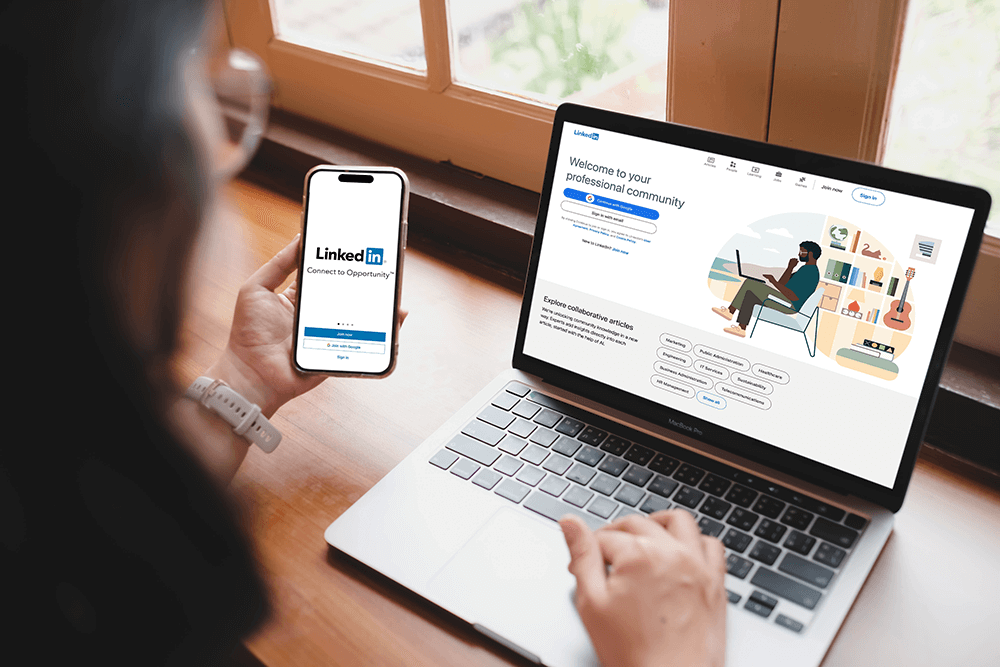An Interview with PCG’s Lead Web Developer
At the beginning of last year, we had our lead web developer, Paul, write a blog post about being safe online in 2012. Well, we can’t believe it, but it’s that time of year again!
With identity theft currently ranked as the fastest growing crime in the United States and more and more people shopping and paying bills online, it’s more important than ever to be safe on the Internet.
For some important tips to be safe online and prevent identity theft, check out our interview with Paul:
PCG: Most of our readers are regularly doing online shopping and/or paying bills online, which means their personal information is now in more online databases than ever before. It also means their personal information is at more of a risk of falling into the hands of people they’d rather it not. What advice do you have related to passwords?
Paul: Here are four tips related to passwords:
- Add a Password to Your Personal Computer
It seems like a no-brainer, but you’d be surprised how many people don’t password-protect their own personal computers, which is one way you can protect yourself from hackers and other unwelcome users. - Use a Unique Password for Everything
When you’re shopping online, most retailers ask you to create a free account that you can use when you return to shop again. The problem is, most people use the same passwords for all of their online accounts. Hackers know this, and they love it. If your personal information is leaked anywhere, they can match your email address and password everywhere online – not just the place it was leaked from. In 2013, make sure you use a unique password for everything! - Change Your Passwords for 2013
We’re already at the end of February, but you can still make it a point to change your passwords for the new year. You should have a different password for everything you use – but definitely your email, online banking, mobile service providers, blog and social media. If you use a unique password for all of your online accounts, you can limit the risk you face if (and when) your personal information is leaked online. - Make Your Passwords Longer
When you create an account online, you’re probably assuming that the password you’re entering is being kept secure by the company you’re giving it to. Most likely it is (or they think it is), but even encrypted passwords can be cracked using a rainbow table. Words from the dictionary can easily be cracked, and even using passwords with punctuation isn’t that secure. But if you use a unique passphrase instead of a common word, then the chance of the password being cracked is much more unlikely.
PCG: Is there a common problem you see with our clients a lot?
Paul: Unfortunately, yes. I can’t tell you how many times I’ve logged into a client’s website or blog only to find it’s been over a year (sometimes years) since it was updated. This brings us to another important tip:
Make Sure Your Website is Updated
If you have a website or blog, you need to be sure it’s updated. There are thousands of websites using old scripts that have huge security vulnerabilities in them. Hackers will go from site to site quickly testing vulnerabilities with scripts (like SQL injection), and Google makes it easy to find them.
If your website is using an old script, check to see if there is an update available. WordPress and other scripts release updates for a reason – usually because there are security flaws that have been fixed! If you’re not sure what you’re dealing with, shoot us an email and we can take a look.
PCG: Do you have any advice for readers who have their own website and collect the personal information of others?
Paul: That’s a great question because if you’re collecting personal information through your website, you could be liable if that information was stolen. To protect yourself legally, be sure to follow our last tip:
Use Terms of Use and Privacy Policy
If you’re collecting information from visitors to your website, it’s important to have these documents available. In the event a hacker is able to steal personal information you’re storing, your Terms of Use and Privacy Policy documents can save you from too much liability. The bottom line, though, is to protect yourself by making sure information is collected in a secure manner.
PCG: Thanks for all the great tips, Paul! We recommend that all readers pass this information along and let us know if you have any questions!
 Branding
Branding Strategic Marketing
Strategic Marketing Creative Concepts
Creative Concepts Web Services
Web Services AI Services
AI Services Speaking & Consulting
Speaking & Consulting Website Maintenance
Website Maintenance Careers
Careers Tools We Suggest
Tools We Suggest 10 Tips to Transform Your Marketing
10 Tips to Transform Your Marketing




0 Comments